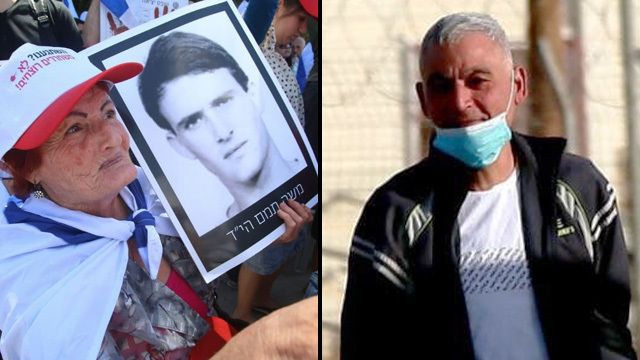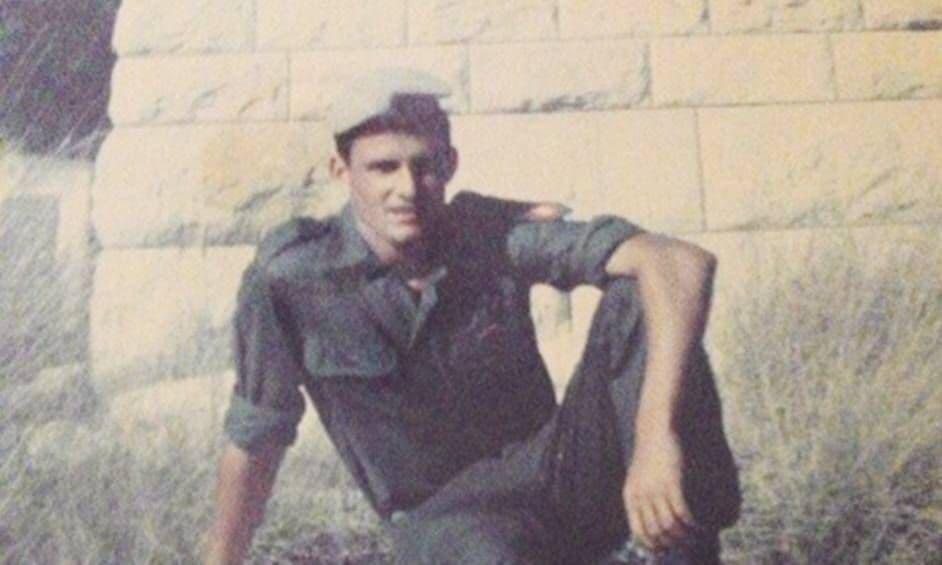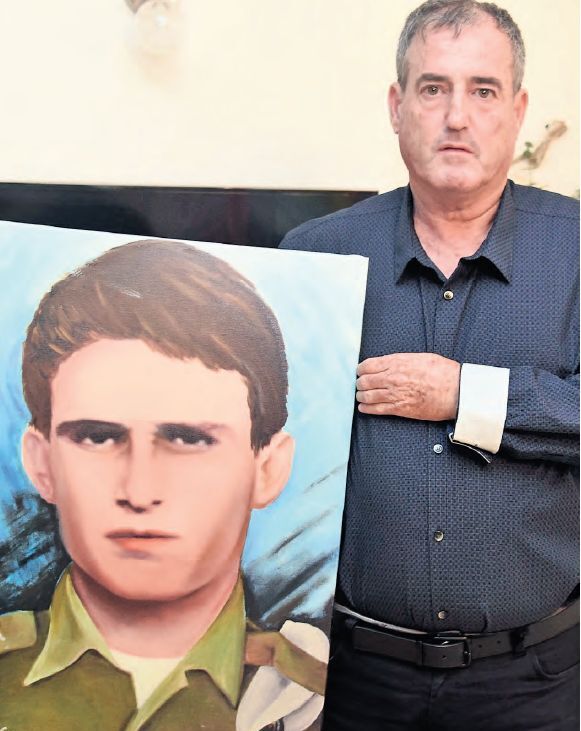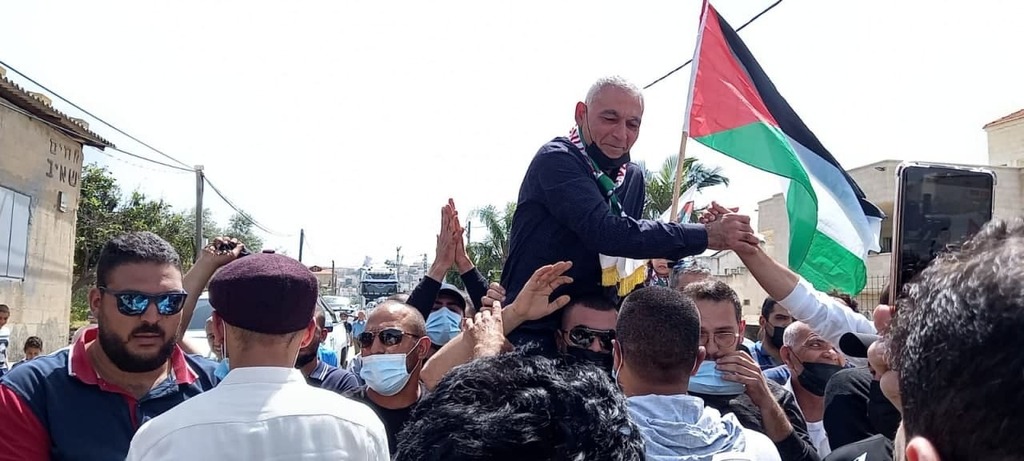Getting your Trinity Audio player ready...
A terrorist who has served a 35-year sentence for the killing of an IDF soldier was released from prison Monday morning as the slain soldier's family appealed to the interior minister in demand his citizenship be revoked.
Rushdi Hamdan Abu Mukh was convicted for the murder of IDF soldier Moshe Tamam in 1984 alongside three other accomplices — Walid Daka, Ibrahim Abu Mukh, and Ibrahim Abdel Razek Bayadseh — all of them Israeli citizens from Baqa al-Gharbiyye operating on behalf of the Popular Front for the Liberation of Palestine (PFLP) — the same group behind the West Bank attack in which 17-year-old Rina Shnerb was killed her father and brother were also seriously wounded.
All four were sentenced to life in prison but Abu Mukh's sentence was commuted to 35 years in 2012 by then-president Shimon Peres.
Tamam's family has been appealing to Interior Minister Arye Deri since the beginning of March, demanding he revokes Abu Mukh's citizenship.
"We regret that we weren't aware of the fact that the terrorist's sentence was commuted in 2012," Oren Tamam, Moshe's brother, told Ynet. "It's unclear how this has happened. I can't remember the punishment of a soldier's murderer being commuted. This is bizarre. This is a very tough situation for my parents, and for us the siblings."
"He'll return to his home in Baqa al-Gharbiyye, a short aerial distance from us who live in Netanya. The mere thought of running into him on the street is awful."
In great pain, Moshe's mother, Galia, lamented Abu Mukh's early release from prison.
"Does it make any sense that the terrorist who killed my son walks free? They took my son, murdered him, and now they're letting the killer walk? Does this make any sense what's happening in this country?" she said. "My son was murdered and now they're embracing the murderers. I'm feeling sick as a bereaved mother since this happened. The entire family does. My son was murdered, and the murderers got free higher education in prison and now they're going to stay here and live among us.
Galia's granddaughter and Moshe's niece, Dr. Ortal Tamam, protested the decision, fearing her relatives may encounter the killer during their daily lives.
"Now in Baqa al-Gharbiyye, they're preparing a welcome celebration for him. It's unthinkable that an IDF soldier's killer, especially one that boasts about the murder he committed, will go back home," she said.
4 View gallery


Galia Tamam holds a portrait of her late son, Moshe; one of Moshe's killers Rushdi Hamdan Abu Mukh
(Photo: Roee Idan, Miri Tzahi)
The family also urged Public Security Minister Amir Ohana on Sunday to prevent the planned celebrations from taking place.
"The killer Rushdi Abu Mukh is going to be my family's neighbor. If a soldier's killer's citizenship does not get revoked, then whose does?" Dr. Tamam said. "Why does the interior minister have the authority to revoke citizenships if not for this kind of case? Grandpa and grandma have paid the ultimate price for this country. They don't deserve this — running into their son's killer at the supermarket, the market, or while waiting for the doctor. My father, my uncles and my aunts have paid the ultimate price. They do not deserve to live in fear.
Interior Minister Deri on Sunday appealed to defense officials for their opinion on the matter which is required in citizenship revocation proceedings.
The Interior Ministry said that the defense establishment opposed advancing such a move. As a result, Deri will convene an urgent discussion to further examine the issue.
The Tamam family also protested in the past against a play called "A Parallel Time" which was based on the story of one of Moshe's killers — Walid Daka — and was supposed to be staged by Al-Midan Theater in Haifa.




